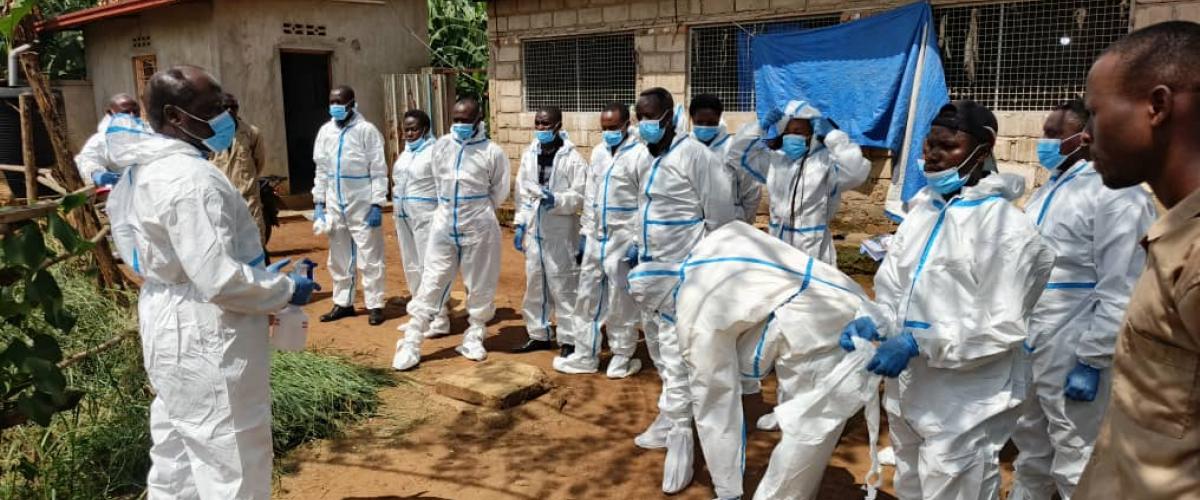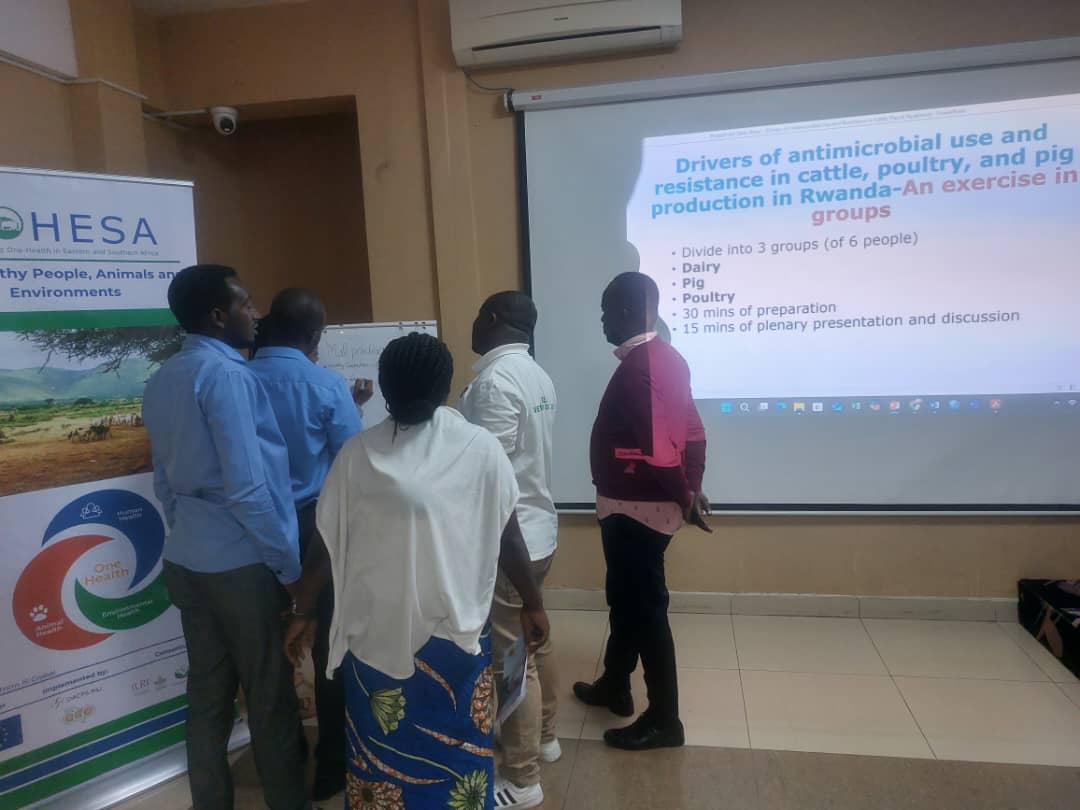
Background
Rwanda's agricultural sector is a cornerstone of its economy and livelihoods, contributing significantly to food security, employment, and rural development. Livestock production plays a critical role by providing income, nutrition, and draft power for millions of households. Despite its importance, involving approximately 61% of farm households and contributing over 14% of agricultural GDP, the sector faces persistent challenges, including climate change and prevalent zoonotic diseases, which pose significant threats to both animal and human health. Additionally, emerging global issues like antimicrobial resistance (AMR) exacerbate the burden on Rwanda’s veterinary and public health systems.
Veterinary practitioners are essential within One Health frameworks as they are responsible for disease surveillance, diagnosis, treatment, and monitoring the implementation of biosecurity measures. Their role extends beyond animal health to protecting human health from zoonoses, reducing the risk of AMR, and safeguarding livelihoods. Recognizing this critical role, the Rwanda Agriculture Board (RAB) collaborated with the University of Global Health Equity (UGHE), supported by the Capacitating One Health in Eastern and Southern Africa (COHESA) project, to conduct a workshop aimed at strengthening the capacity of practicing veterinarians under the Veterinary Sanitary Mandate. The training was designed to equip both public and private veterinarians with the knowledge and skills to integrate One Health approaches into their daily practice.
One Health Capacity Building for Veterinary Practitioners
From 10-14 February 2025, 19 veterinary practitioners participated in an intensive training program covering zoonotic diseases, AMR, antimicrobial use, disease diagnostics, treatment protocols, biosecurity measures, and the broader interconnections of One Health across sectors. The sessions incorporated a mix of didactic training, group discussions, and field visits to pig, poultry, and dairy farms in Gasabo District, Kigali.

A key focus of the workshop was the Veterinary Sanitary Mandate, a legal and regulatory framework implemented by RAB to promote animal health and public safety.
Dr. Fabrice Ndayisenga, head of the Animal Resources Research and Technology Transfer at RAB said,
‘This workshop underscores the importance of continuous professional development for veterinarians in advancing Rwanda’s One Health agenda. By equipping them with the necessary skills and knowledge, Rwanda is taking a proactive approach to ensuring sustainable livestock production, improved public health, and resilient veterinary services.’
The training was facilitated by experts from the Animal Resources Research and Technology Transfer division at RAB, the University of Global Health Equity, the Ministry of Agriculture and Animal Resources, the Rwanda Biomedical Centre, and the Rwanda Council of Veterinary Doctors
Dr Anselme Shyaka, an Assistant Professor of One Health at UGHE and the Rwanda COHESA project lead thanked RAB for organizing the workshop and expressed hope that it would strengthen the participants’ understanding of One Health. He provided a brief overview of COHESA and reiterated the importance of cross-sector collaboration in addressing health issues. He concluded by expressing appreciation to the Government of Rwanda for recognizing One Health as a crucial approach to tackling various challenges.
One Health Capacity Building for Veterinary Practitioners
During field visits, the veterinarians observed various biosecurity challenges and environmental risks that underscored the need for a One Health approach. Notable concerns included:
- Pig farm: Proximity of a pit latrine, dog shelter, and piggery, as well as poor structures allowing rodents and wildlife entry—posing significant disease risks.
- Dairy farm: Farmworkers using a cattle trough to wash dishes and the presence of stagnant water, a potential breeding ground for mosquitoes and other disease vectors.
- Poultry farm: Improper disposal of medications, leading to environmental contamination and contributing to AMR.
Based on these findings, the veterinarians recommended improvements in biosecurity, hygiene practices, farm structures, housing conditions, and waste management to mitigate disease risks and enhance farm management. Other key recommendations included removing stagnant water, separating water sources, and improving the handling and disposal of veterinary medications.

Ngango Emmanuel, one of the participating veterinarians, highlighted the workshop's impact, stating:
‘The training will enhance our daily practice as veterinarians while improving farm output through better management practices.’
Looking Forward
Veterinary practitioners are a vital part of the One Health workforce. As the first line of defense against zoonotic diseases, emerging infectious diseases, and AMR, they play a crucial role in disease prevention and management. By enhancing their capacity to apply One Health principles in their work, they can contribute to healthier animals, humans, and environments.
Moving forward, expanding the training to reach more veterinary practitioners and incorporating the Integrated Disease Surveillance and Response System (e-IDSR) would further strengthen the role of veterinarians in One Health. Such initiatives will ensure that Rwanda’s veterinary workforce remains equipped to address evolving health challenges at the human-animal-environment interface.